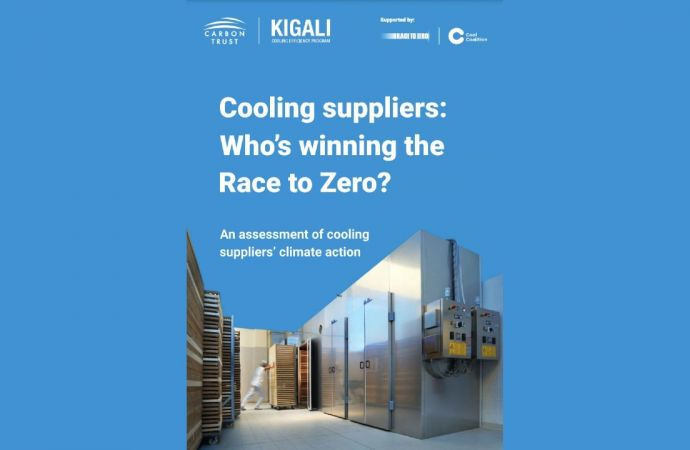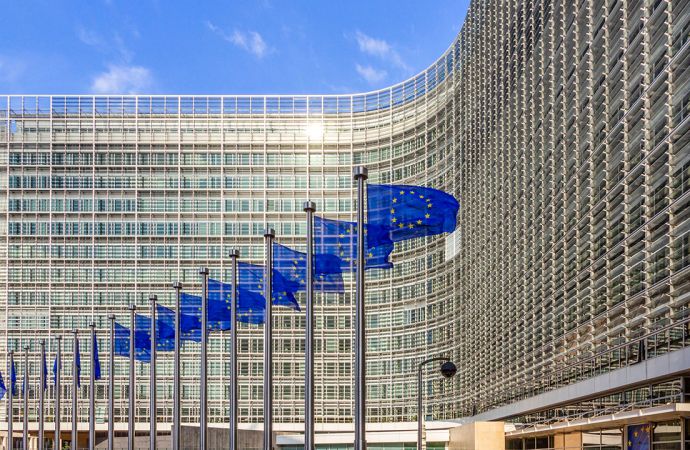On 8 June 2013, President Obama and President Xi agreed on what could signal a “transformational chapter in international cooperation on climate change”. Using the expertise from, and institutions of, the Montreal Protocol, among other forms of multilateral cooperation, the United States (US) and China will work together to phase down the production and consumption of hydrofluorocarbons (HFCs).

The announcement reads: “Regarding HFCs, the United States and China agreed to work together and with other countries through multilateral approaches that include using the expertise and institutions of the Montreal Protocol to phase down the production and consumption of HFCs, while continuing to include HFCs within the scope of UNFCCC and its Kyoto Protocol provisions for accounting and reporting of emissions”.
Paving the way to a universal agreement on HFCs
The agreement could be a major step towards building consensus for an international agreement to phase down HFCs, which so far had been opposed by China but also India and Brazil among other countries.
Achim Steiner, UN Under-Secretary-General and Executive Director of the UN Environment Programme (UNEP) welcomed the announcement:
For the past four years, the US, Canada, and Mexico have proposed an amendment to the Montreal Protocol to phase down the production and consumption of HFCs.
A “transformational chapter in international cooperation on climate change”
Mr Steiner said that the announcement could signal a new and perhaps transformational chapter in international cooperation on climate change.
Mr. Steiner said: “Along with a variety of recent signals from several key countries including China and the United States, this one on HFCs by these two key economies is welcome as the world moves towards a universal UN treaty on climate change by 2015 - certainly allowing the market for HFCs to grow will only aggravate the challenge of combating climate change.”
According to a UNEP Synthesis Report, without action the increased use of HFCs could add annual greenhouse gas emissions of between 3.5 and 8.8 Gt CO2 eq by 2050, comparable to the total current annual emissions from transport. Thus mankind risks undoing the enormous environmental benefit achieved by the phase out of CFCs and HCFCs since the late 1980s.
A global phase down of HFCs could potentially reduce some 90 gigatons of CO2 equivalent by 2050, equal to roughly two years worth of current global greenhouse gas emissions.
Paving the way to a universal agreement on HFCs
The agreement could be a major step towards building consensus for an international agreement to phase down HFCs, which so far had been opposed by China but also India and Brazil among other countries.
Achim Steiner, UN Under-Secretary-General and Executive Director of the UN Environment Programme (UNEP) welcomed the announcement:
The signal from [President Barack Obama and President Xi Jinping] is important as both a confidence builder and if it paves the way to a universal agreement involving all nations that reflects the science of where all emissions are today and where they need to be by a series of deadlines beginning with 2020,”
For the past four years, the US, Canada, and Mexico have proposed an amendment to the Montreal Protocol to phase down the production and consumption of HFCs.
A “transformational chapter in international cooperation on climate change”
Mr Steiner said that the announcement could signal a new and perhaps transformational chapter in international cooperation on climate change.
Mr. Steiner said: “Along with a variety of recent signals from several key countries including China and the United States, this one on HFCs by these two key economies is welcome as the world moves towards a universal UN treaty on climate change by 2015 - certainly allowing the market for HFCs to grow will only aggravate the challenge of combating climate change.”
According to a UNEP Synthesis Report, without action the increased use of HFCs could add annual greenhouse gas emissions of between 3.5 and 8.8 Gt CO2 eq by 2050, comparable to the total current annual emissions from transport. Thus mankind risks undoing the enormous environmental benefit achieved by the phase out of CFCs and HCFCs since the late 1980s.
A global phase down of HFCs could potentially reduce some 90 gigatons of CO2 equivalent by 2050, equal to roughly two years worth of current global greenhouse gas emissions.
MORE INFORMATION
Related stories



